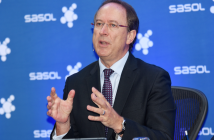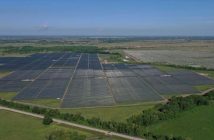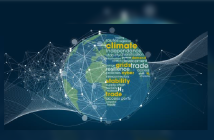- Does Africa have a sufficient number of job-ready workers and entrepreneurs to service the mini-grid solar market and other renewable energy services?
- Industry insiders complain that the biggest challenge is finding talent who can and are willing to adapt to highly dynamic situations.
- Another problem has been finding strong senior leadership or experienced managers who are effective, affordable and understand local contexts.
Affordable technologies. More financing. Supportive government policies. These are just a few of the key ingredients for catalysing faster growth of home solar systems, mini-grids and other distributed renewable energy (DRE) services in Africa.
But there’s another often-overlooked ingredient: having a sufficient number of job-ready workers and entrepreneurs who can sell, develop, install, operate and manage off-grid renewable systems and productive-use appliances.
As distributed renewable enterprises ramp up sales and expand across Africa, finding the necessary talent to meet these rising demands is becoming harder. And with off-grid markets expected to boom in the coming years, especially in rural areas where many people have no electricity, the challenge will only get bigger. BBOXX and PowerGen are already feeling the talent pinch.
“The biggest challenge is finding talent who can and are willing to adapt to highly dynamic situations that are often in flux,” said Aaron Cheng, president of PowerGen Renewable Energy, which has developed dozens of mini-grids in Kenya, Tanzania and Zambia. “The second biggest challenge has been finding strong senior leadership or experienced managers who are effective, affordable and understand local contexts.”
BBOXX, an off-grid solar provider in sub-Saharan Africa, faces similar “in-market competency shortages,” although they vary from country to country, says Kweku Yankson, the company’s group head of human resources. In Rwanda and the Democratic Republic of the Congo, for example, finding senior-level managers is an obstacle. On the other hand, Kenya has lots of talent, but salaries tend to be very expensive due to the presence of multinational companies.
Countries across sub-Saharan Africa have the biggest energy access skills challenge. The region has more 600 million people living without electricity and only 16,000 people working in the renewable energy sector (excluding South Africa), according to the latest data from IRENA. Compare that to India, which has half as many people living without electricity and 10 times more people working in the solar PV sector alone.
Building an energy access workforce that will enable DRE enterprises to flourish is a massive economic opportunity for Africa. It will create wide-ranging jobs and business opportunities in underserved areas that need clean energy and economic activity the most. And many of these rural jobs could be filled by women and swelling youth populations, who suffer the most from energy poverty and broader economic disenfranchisement. An estimated 13 million African youth enter the labour market ever year, yet only three million get formal jobs.
So what is being done to fill the gap? For starters, there’s a broad recognition of the growing mismatch between the skills that Africans have today and the skills that employers – including DRE enterprises – are demanding. One sign of this: only 2% of university graduates in Africa are engineers, which is where many future jobs lie.
“We are essentially training out youth for jobs of yesterday, not the jobs of the future,” said African Development Bank President Dr Akinwumi Adesina, who launched an initiative last year to create 25 million jobs and provide skills training for 50 million youth in the next decade. But comprehensive government-led efforts focused on DRE job skills are minimal at best – a point made clear by the World Employment & Social Outlook 2018 – Greening with Jobs report.
While India, the Philippines and South Africa were credited for pro-active policies and programmes to develop renewable energy and other green job skills, most African countries got barely any mention. The private sector has been doing much of the heavy lifting on this issue in Africa. BBOXX and M-KOPA have both created their own ‘University’ and ‘Academy’ programmes to train their teams. They are also partnering with Shortlist, a tech employment startup in Kenya that helps companies build internal learning and development programmes for junior, middle and senior level staff.
Furthermore, Schneider Electric has opened some training centers in South Africa and a handful of other African countries as part of its Access to Energy Solutions programme. But private sector efforts can do only so much. “This approach limits the number of people who can be trained,” states the Kenya Renewable Energy Association. “Without institutionalisation of renewable energy training programmes, especially at the technical institute level, there will always be insufficient local capacity to meet the demand for technical services required for the RE (renewables) market.”
Given the industry’s importance in helping countries achieve energy access goals, BBOXX’s Yankson suggests that governments work more closely with DRE enterprises to identify core talent gaps that are impeding faster deployment of off-grid solutions. “These reviews could lead to policies that aim to develop these capabilities in ways that are more effective for companies,” he said.
A diverse coalition recently announced the #PoweringJobs campaign to help build the global workforce that will be needed to fill the millions of news jobs that are expected in the distributed renewable energy sector in Africa and Asia. The coalition includes companies, government and multilateral institutions, researchers, NGOs and trade associations.
Author: William Brent, director at Power for All
This article was originally published on ESI Africa and is republished with permission with minor editorial changes.











